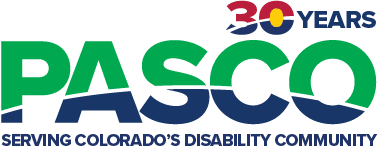Down syndrome is a very common genetic condition with a wide range of symptoms. In the United States, it’s the most commonly diagnosed chromosomal condition resulting in over 6,000 babies being born with Down syndrome each year. People diagnosed with this condition will face unique physical and mental challenges as they grow, but with the right services and an educated caregiver, they can lead fulfilling lives.
Let’s explore the causes, traits and other important information surrounding Down syndrome and how to best care for someone with this lifelong condition.
What is Down Syndrome?
Down syndrome is a chromosomal condition that occurs during fetal development. Typically, babies are born with 23 pairs of chromosomes, inheriting one chromosome from each pair from each parent. A baby born with Down syndrome has an extra full or partial 21st chromosome. This affects the baby’s physical and mental development as they grow.
There are three different types of Down syndrome, but individuals with all three conditions usually have similar symptoms. In fact, you may not be able to tell which type of Down syndrome a person has unless their blood is drawn and their chromosomes are examined.
Trisomy 21
- 95% of people with Down syndrome have Trisomy 21. In these cases, their bodies have three copies of the 21st chromosome instead of two.
Translocation Down Syndrome
- Only about 3% of people have this type of Down syndrome and it’s diagnosed when a person has a partial or entirely extra 21st chromosome that attaches to a different chromosome. This is different than Trisomy 21, when the 21st chromosome is completely separate.
Mosaic Down Syndrome
- In 2% of cases, an individual’s cells can have varying amounts of the 21st chromosome. In some cells, there may be three copies, while in others, only two are present. People who have mosaic Down syndrome may have fewer symptoms of the chromosomal condition since some of their cells have the typical number of chromosomes and others do not.
What Causes Down Syndrome?
Down syndrome is usually caused during cell division when the fetus is beginning to develop. There are a few risk factors that can increase a baby’s likelihood of developing Down syndrome. They include:
- Mother is over 35 years old at the time of conception
- Parents are carriers of the genetic translocation for Down syndrome. This occurs when an extra part or a whole extra chromosome 21 is present, but it is attached or “trans-located” to a different chromosome rather than being a separate chromosome 21.
- Parents already have a child with Down syndrome
This condition does not have a known environmental or behavioral cause and it is rarely genetically passed down from the baby’s parents.
Many children with Down syndrome lead healthy, active lives. They can go to school, participate in numerous activities based on their interests and enjoy being social with others. Advocacy and research efforts have greatly improved the number of available resources, support, and care that those Down syndrome deserve to have.
What are the Symptoms of Down Syndrome?
According to the Mayo Clinic, there are several distinct physical features that can be observed in individuals with Down syndrome. Some of these features include:
What are Other Health Conditions Associated with Down Syndrome?
Today, the average life expectancy for a person with Down syndrome is 60 and you can help your loved one to live a long, happy life. It’s important to visit the doctor regularly and stay on top of any health concerns since Down syndrome can increase the risk of developing several other health issues. Some of them include:
How a Family Caregiver Can Assist Someone with Down Syndrome?
Children and adults with Down syndrome all have unique abilities and needs. If you’re caring for someone with this lifelong condition, it’s important to find support and educate yourself so you can help them to live a long, happy life. With a loving caregiver’s help, an adult with Down syndrome can develop meaningful relationships, work, vote and many adults can even live independently or in group homes.
A caregiver can expect to advocate for their loved one from an early age. There are many therapies available for small children with Down syndrome to help them develop their speech, strengthen their muscles and learn to take care of themselves. Social enrichment is also key as your loved one grows up. Finding classes, activities, or creative outlets that lets them explore their interests is crucial. A caregiver can expect to drive their loved one to doctor’s appointments as well, coordinate appointments, and attend the appointments to make sure they receive the care they need. Beyond these appointments and therapies, loved ones of those with Down syndrome will enjoy watching their interests and passions grow as they get older. While monitoring development and advocating for loved ones is a crucial part of caring for someone with Down syndrome, there is much more time to be had to observe the joys of everyday life together.

Most children with Down syndrome thrive on routine and will develop into adults who can successfully contribute to society when they’ve got a loving caregiver encouraging them every step of the way. Individuals with Down syndrome have started businesses, become politicians, are all-star athletes, and more. There is no shortage of opportunities for your loved ones with the right resources and care. PASCO’s Family Caregiver Program is here to provide support by reimbursing you for the time you spend taking care of your loved one with Down syndrome. Contact us for more information.
Family Caregiver Program
In 2001, PASCO’s founder Barry Rosenberg initiated the creation of the Family Caregiver Program in Colorado. Today, family caregivers can be reimbursed for some of the time they spend giving care to loved ones with cerebral palsy.
To learn more about the program and caring for people with cerebral palsy, contact us at any convenient time.

